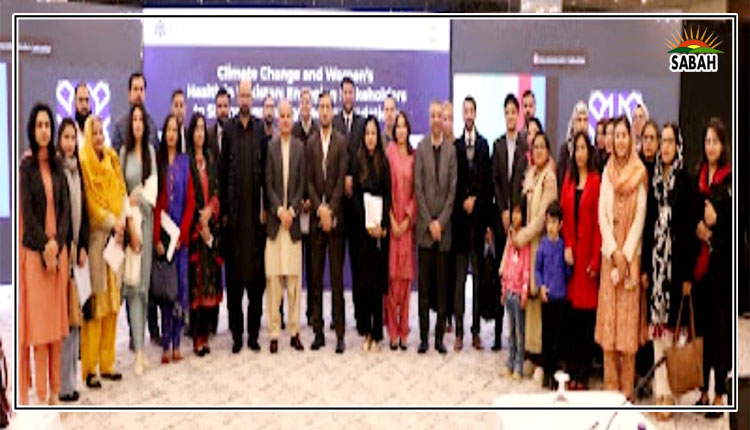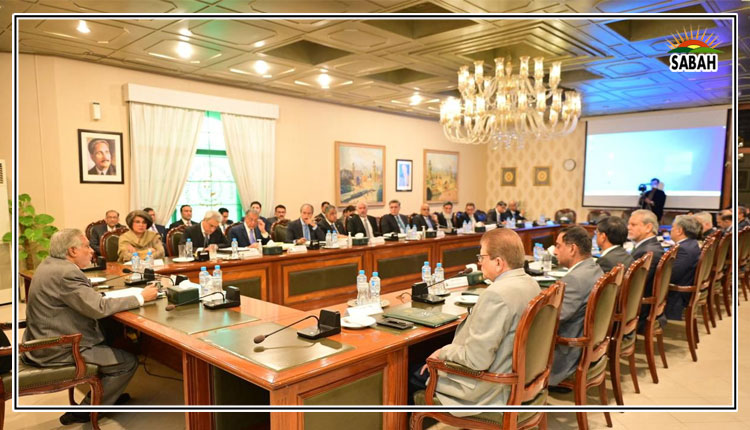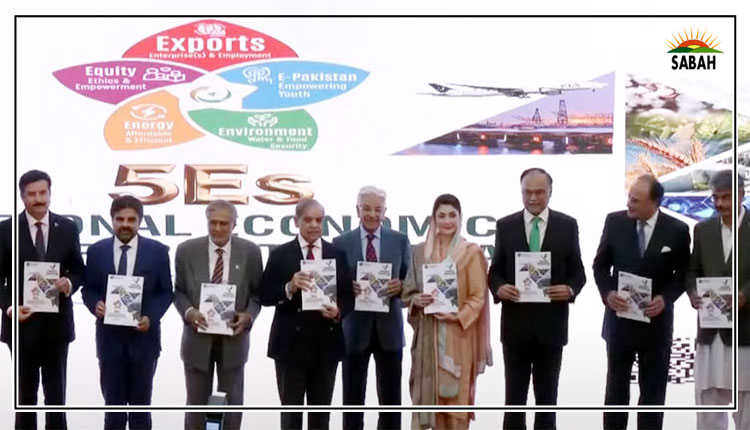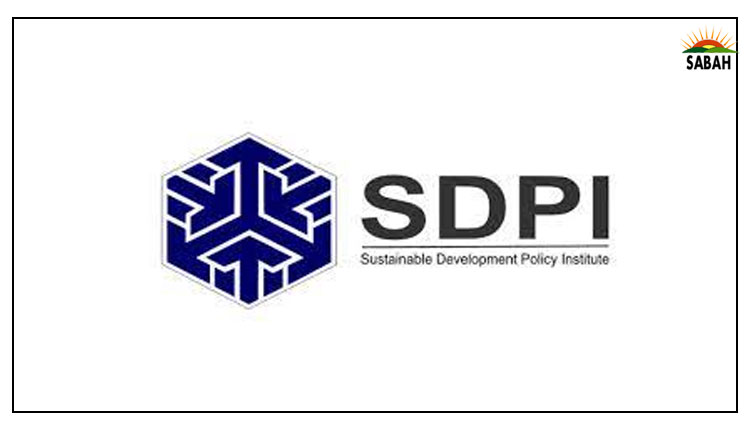Seamless cross border trade with relaxed regulatory regime to help food security challenges in Asia: Speakers
ISLAMABAD, Oct 20 (SABAH): The Speakers at a webinar on food security and agriculture promotion through cross border trade on Friday said the Asia region has a tremendous agriculture potential which is facing adverse impacts of climate change and could help enhance resilience to environmental degradation food security challenges through cross border trade between the regional states.
The Sustainable Development Policy Institute (SDPI) organized the webinar titled “Innovation for Food Security and Regional Trade for Agriculture Promotion” here moderated by Project Coordinator, SDPI, Abdullah Khalid.
In his opening remarks, James McNee, First Secretary, Canadian Embassy in Pakistan said cooperation and coordination is instrumental for promoting and galvanizing the endeavours intended to address trade, food security and agriculture sector issues.
He said Canada has a long history of exporting grains, canola and other agricultural products to Pakistan; however, the country needs the political will to modify legislation on genetically modified organisms (GMOs) to transform its existing agricultural production. The Canadian envoy underscored that linkages have been established between grain institutes in Canada and Punjab, province to further study the GMOs that are being raised in Canada for its suitability to the soil of this region.
“There is a need to develop sustainable agricultural solutions by Pakistan that address food security and climate change on priority. Canada has food security on its priority. Recently, I witnessed the 2022 floods devastation that washed away standing crops inundating acres of cultivated land in Punjab and other provinces,” he added.
Dr. Vaqar Ahmed, Joint Executive Director, SDPI in his welcome remarks informed the participants that the SDPI has planned a hackathon for November 17-18 inviting teams from neighbouring countries to participate in the debate about food security, agriculture and trade.
“Food security is an international issue where 9.2% of world population is facing hunger and malnourishment with 55% of that number existing in Asia region alone,” he said.
He added that affordability is linked to many people in Asia who are unable to afford daily healthy diet whereas food price inflation is also contributing to their health as well.
Dr. Vaqar mentioned that there is a broad-based strategy required on this issue as Pakistan’s challenges in this regard are unavailability or poor-quality fertilizers, water scarcity, loss during harvest, lack of machinery and equipment and uncertain credit terms and lack of insurance to farmers. He proposed that to promote agriculture through cross-border trade with the neighbouring countries reforms in trade sector is a low hanging fruit.
DR Vaqar Ahmed mentioned that the country has legislation on all the sectors ranging from National Food Security Policy, Water Policy, 5Es Framework of Planning division that also address water and agriculture, but the major issue is that of implementation.
Pierre Bonthonneau, Senior Advisor, International Trade Center (ITC) said the Center is working on improving the countries’ capacities to indulge in healthy international trade. The issues of food security and cross-border trade are very closely interconnected, whereas the trade of agriculture goods is the livelihood of millions of workforces.
He added that during cross-border trade the prices of agricultural goods spike up in case of any delays during the transit, whereas those of perishable items drop by a whopping 70% in international trades. He added that the food security issue can be addressed by minimizing such delays.
Pierre Bonthonneau claimed that cross-border trade in the prevailing times required digitization and cutting-edge solutions that ensure well-regulated and uniform cross-border trade to ensure food security and healthy trade.
Ayma Hayat Tamman, CEO, Tamman Farms said climate change has been casting serious impacts on the agricultural sector as it is directly impacting the crop yields and cultivation lands. She emphasized the need to focus on research and development to bring farmers to green fertilizer than the chemical-based pesticides and fertilizers detrimental to insect and birdlife. Tamman believed that the country’s farmers need education and training programs alongwith efficient water management system to promote agriculture sector.
Prof. Dr. Bushra Yasmin, Professor of Economics, Fatima Jinnah Women University said the availability, accessibility and affordability of healthy food commodities to live a healthy life define the concept of food security and is essential to achieve the goal of enhancing the food security. She added that the overall climate change impacts demand serious attention as more the adverse impacts of climate change the lower will be the food security.
Dr. Haroon Sarwar, Economic Consultant, Ministry of National Food Security & Research said food security is the outcome of agriculture sector and the latter is facing a lot of challenges in Pakistan.
He said the agriculture sector is not profitable as compared to non-agriculture sector, whereas profitable incentives to farmers can help yield good productivity.
Dr. Sarwar noted that lack of farmers access to credit is also an issue whereas formal collateral free credit, profitable seed price and quality fertilizer can ensure proper availability of food at affordable prices.












